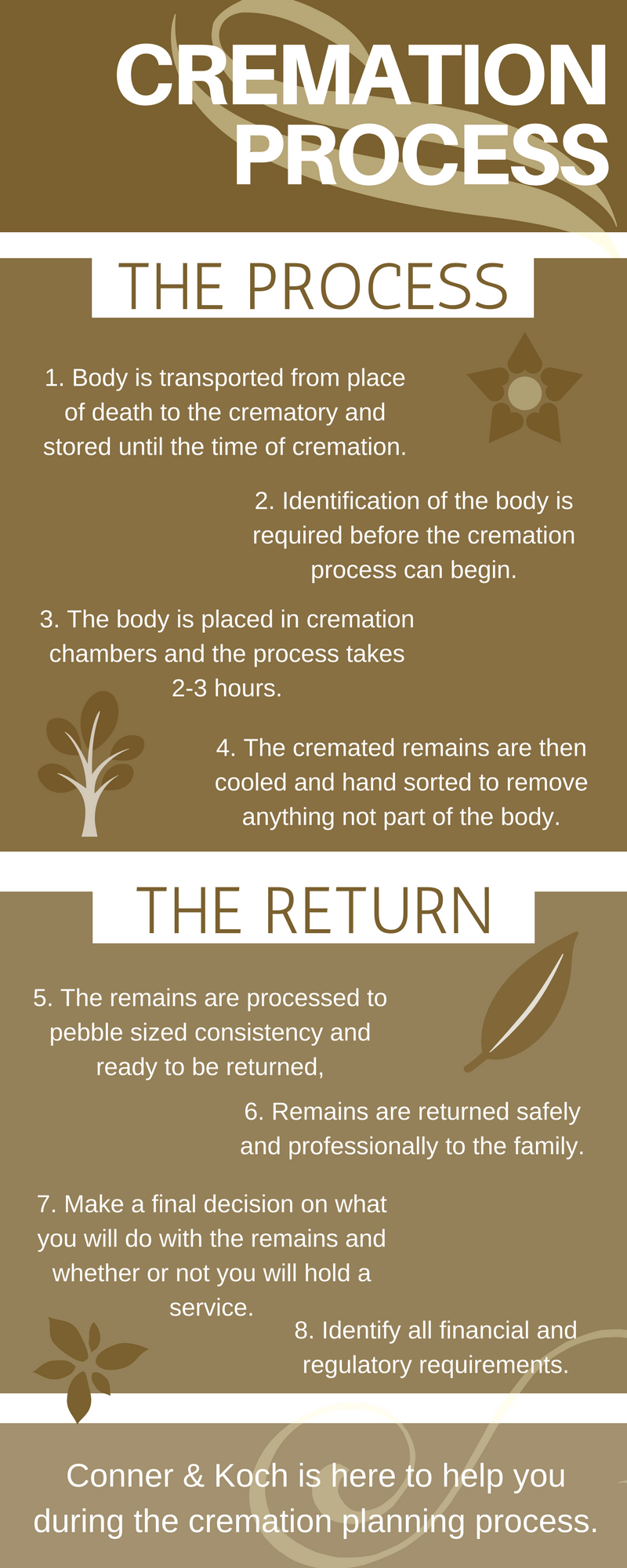Obituaries





















Search
Use the form above to find your loved one. You can search using the name of your loved one, or any family name for current or past services entrusted to our firm.
Click here to view all obituaries




















Use the form above to find your loved one. You can search using the name of your loved one, or any family name for current or past services entrusted to our firm.
Click here to view all obituariesCremation is the process of reducing a body to ash by exposing it to very high temperatures. First, the family or next of kin must authorize the body to be cremated. The crematorium operator prepares the body and removes any jewelry, medical devices (i.e. pacemakers), prostheses, and implants. The corpse is placed in a container made of wood or heavy cardboard. The container is then placed into the crematory chamber which is essentially a large furnace. The heat ignites the container and the body begins to dry out. The temperature in the chamber can rise to about 2000 degrees Fahrenheit. It usually takes 2 to 3 hours to fully cremate a body. What’s left is a grey coarse material that feels like a fine gravel. On average, 3 to 9 pounds of ash is produce (Kim, 2018).

1) The deceased body is transported from the place of death to the crematory and stored until the time of cremation.
2) The body is properly identified before the cremation process can offically begin.
3) The body is then placed in the cremation chambers and the process takes approximately 2-3 hours.
4) The cremated remains are then cooled and carefully hand sorted to remove anything that is not part of the body.
5) The remains are processed to pebble sized consistency (ashes) to be given to the family.
6) The remains are safely and professionally returned to the family.
7) The family makes a final decision regarding what to do with the remains and whether or not to hold a service.
8) Identify all financial and regulatory requirements.
If you have any questions about the cremation process we encourage you to talk to us. We appreciate the opportunity to share our insights and experience, to fully support you in making end-of-life decisions for you and your family. Call us at 937-848-6651 to schedule an appointment or drop by our office.
Grieving doesn't always end with the funeral: subscribe to our free daily grief support email program, designed to help you a little bit every day, by filling out the form below.
It's hard to know what to say when someone experiences loss. Our free weekly newsletter provides insights, quotes and messages on how to help during the first year.